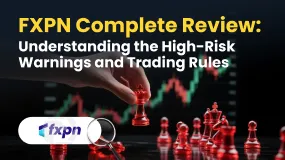Abstract:Currency intervention involves actions by a nation's central bank or monetary authority to influence the value of its currency in the foreign exchange (forex) market. These interventions aim to achieve specific economic objectives, such as controlling inflation, stabilizing the currency, or influencing trade balances.

Currency intervention involves actions by a nation's central bank or monetary authority to influence the value of its currency in the foreign exchange (forex) market. These interventions aim to achieve specific economic objectives, such as controlling inflation, stabilizing the currency, or influencing trade balances.
Types of Currency Intervention
- Direct Intervention: This involves the central bank buying or selling its own currency against foreign currencies. For example, to weaken its currency, a central bank might sell its own currency and purchase foreign currencies. Conversely, to strengthen its currency, it might buy its own currency using foreign reserves.
- Indirect Intervention: Instead of directly engaging in currency markets, a central bank may adjust interest rates or implement monetary policies that influence currency values. For instance, raising interest rates can attract foreign capital, leading to an appreciation of the domestic currency.
Purposes of Currency Intervention
- Stabilizing the Currency: Excessive volatility can harm economic stability. Interventions can smooth out fluctuations, providing a more predictable environment for businesses and investors.
- Controlling Inflation: A stronger currency can reduce the cost of imports, helping to keep inflation in check.
- Influencing Trade Balances: By adjusting the currency's value, a country can make its exports more competitive or imports more expensive, thereby affecting the trade balance.
Effectiveness and Considerations
The success of currency interventions depends on various factors, including the scale of the intervention, market perceptions, and the underlying economic conditions. While interventions can have short-term effects, their long-term success often requires consistent and credible policies. Additionally, interventions can lead to retaliatory actions from other countries, potentially escalating into currency wars.
Recent Examples
- Swiss Franc: During the 2007-2008 financial crisis, the Swiss National Bank (SNB) intervened to prevent the Swiss franc from appreciating too much, which could harm the country's export-driven economy. The SNB's actions included purchasing foreign currencies to weaken the franc.
- Russian Ruble: In 2014, the Central Bank of Russia allowed the ruble to float freely, significantly depreciating. The central bank then intervened by raising interest rates and selling foreign reserves to stabilize the currency.
Conclusion
Currency intervention is a critical tool for central banks to manage their economies. While it can effectively achieve short-term objectives, the long-term success of such interventions depends on sound economic fundamentals and consistent policy implementation. Understanding the mechanisms and implications of currency intervention is essential for policymakers, investors, and businesses engaged in the global economy.

Disclaimer:
The views in this article only represent the author's personal views, and do not constitute investment advice on this platform. This platform does not guarantee the accuracy, completeness and timeliness of the information in the article, and will not be liable for any loss caused by the use of or reliance on the information in the article.









